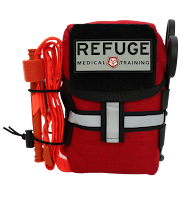Lawful Criteria to Declare a State of Emergency
The World Council for Health (WCH) works with experts to develop legal briefs that present the lawful position on human rights issues and recommendations for asserting and protecting these rights. These legal briefs are written in a way that can be understood by specialised and non-specialised audiences and can be used in education, advocacy, and law initiatives such as investigations, inquiries, and litigation. Their most recent legal brief is entitled Preventing the Abuse of Public Health Emergencies.
From the Summary section of the Legal Brief:
The abuse of emergency provisions over the past three years has again brought to the world’s attention the complicated relationship between the declaration of a ‘state of emergency’ and the protection of essential human rights. Controversially, the World Health Organization (WHO), an agency of the United Nations, ‘declared’ COVID-19 a pandemic on March 11, 2020. This was followed by many countries across the world instituting severe emergency measures, resulting in widespread violations of basic human rights.
Governments abused the declaration of a state of emergency, revealing a brash and cavalier indifference towards IHRL and the lawful limits to policymaking.
Indeed, emergency measures were misused “as a nefarious government technique, rather than an exceptional temporary measure.” Unlawful COVID-19-related pseudo-legal emergency regulations breached the fundamental human rights of billions of people globally.
The IHRL standards that authorities need to follow are clear regarding how limitations on essential human rights should be handled during public health emergencies. The requirements for any emergency measures derogating from covenant obligations are that they should, inter alia:
• respond to a genuine, imminent, and immense public or social need;• be imposed by law and not imposed arbitrarily;• be balanced and proportionate to the threat;• be strictly required by the demands of the situation;• be no more restrictive than needed to accomplish the purpose; and• be non-discriminatory to any specific group.2
The international public health community should employ evidence-based policies to control the spread of disease and safeguard the public’s health without infringing basic human rights. From a legal perspective, there was no justification to respond differently to COVID-19 than to other transmissible diseases with similar crude mortality rates, such as certain types of influenza and other respiratory diseases.
Human rights standards and principles contained in the International Covenant on Civil and
Political Rights (ICCPR), the Siracusa Principles (attached hereto Annexure A), and the Paris Minimum Standards (attached hereto Annexure B), specific to public health emergencies, comprise effective, practical criteria that State Parties need to observe to in order to honor their treaty obligations with regard to protecting and ensuring the basic human rights of all within their national borders.
Article 4(1) of the ICCPR explicitly determines that:
In time of public emergency which threatens the life of the nation and the existence of which is officially proclaimed, the State Parties to the present Covenant may take measures derogating from their obligations under the present Covenant to the extent strictly required by the exigencies of the situation, provided that such measures are not inconsistent with their other obligations under international law …
The International Law Association Paris Minimum Standards of Human Rights Norms in a State of Emergency further define a public emergency as:
an exceptional situation of crisis or public danger, actual or imminent, which affects the whole population or the whole population of the area to which the declaration applies and constitutes a threat to the organized life of the community of which the State is composed.
Prior to the declaration of a state of emergency, the onus is on the government to show that the public health crisis ‘threatens the life of the nation’ and that this threat meets the following key criteria:
• It must be actual or imminent;• Its effects must involve the whole nation;• The continuance of the organized life of society must be endangered; and• The threat or crisis must be exceptional in that the ordinary measures or controls for the preservation of public health, order, and safety are undoubtedly inadequate.
A public health emergency that does not meet any one of the above criteria or desiderata would not constitute a legitimate threat to ‘the life of the nation’. Any human rights-infringing public health measures instituted pursuant to such a public health emergency would be illegitimate in terms of normative standards of international human rights.
!! Download the full legal brief by clicking here (link opens a 62-page .pdf on the WCH website).
______________________
Ad: Refuge Medical & Refuge Training - High Quality, American Made, First Aid Kits and Medical Supplies! (Training, too!). A 10% Discount Code will automatically be applied at checkout using this link.

No comments:
Post a Comment
Comments are posted without moderation. Use caution when following links, and beware of SPAM and fake links. Please keep discussions civil and on-topic.